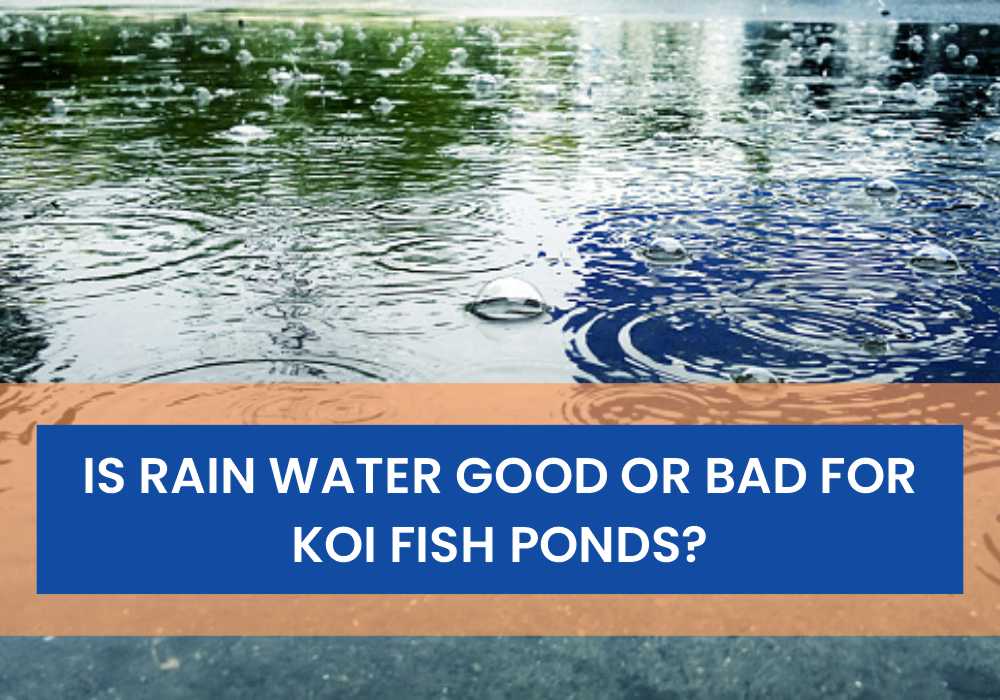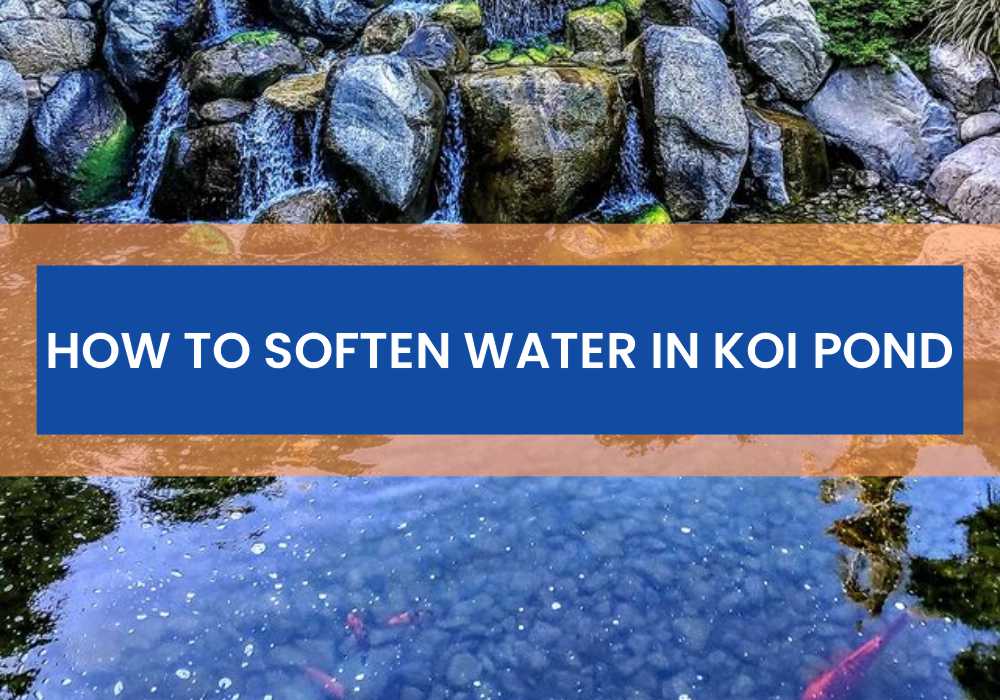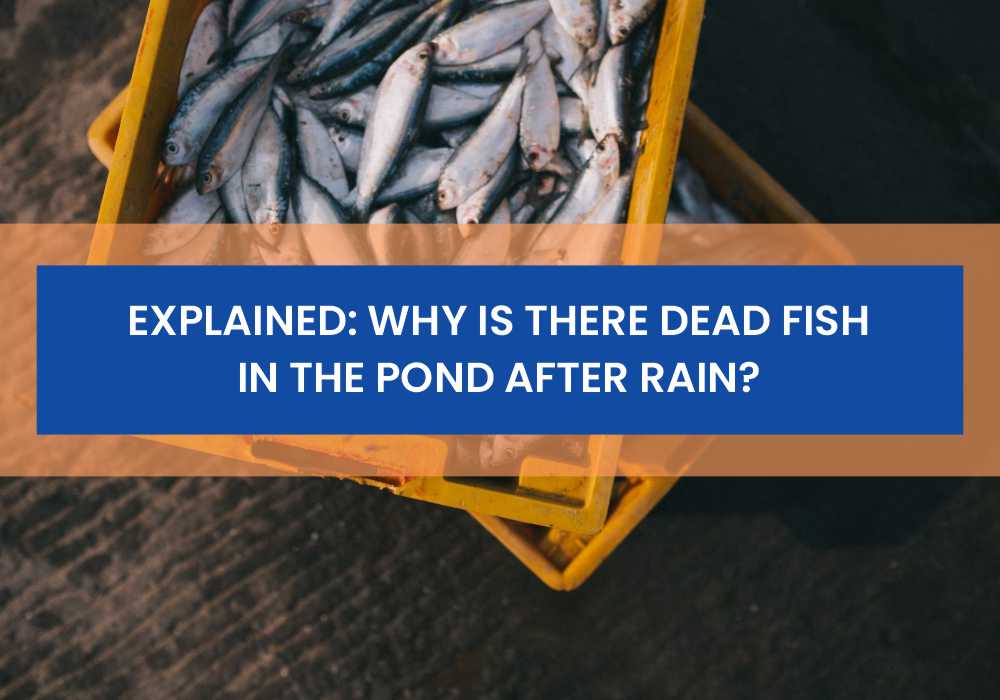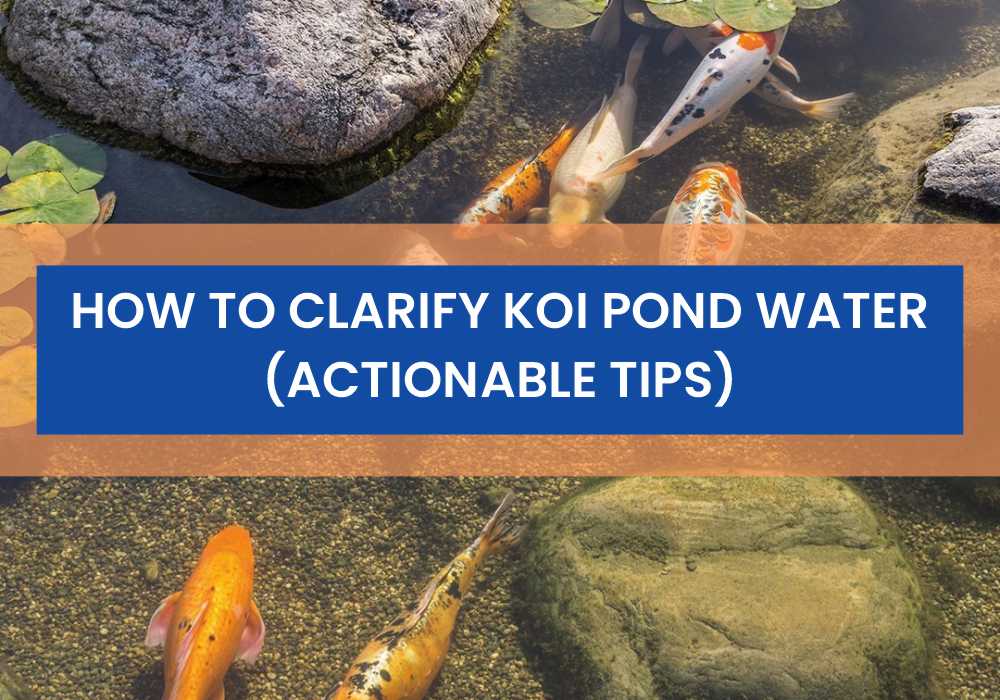As an Affiliate, We may earn a commission that doesn't cost you extra from qualifying purchases using links in this post. It helps keeps this blog running.
Is rainwater good or bad for koi fish ponds? This is an age-old question that pond owners have been asking for years – The answer, as with most things in life, is it depends. In order to keep your koi fish pond healthy, it’s important to understand the effects of rainwater on it and how to manage it.
What Happens To A Koi Pond When It Rains?
Unpolluted rainwater is generally good for koi ponds as it is a source of fresh and clean water. When it rains, koi fish are able to get more oxygen because the rain replenishes the oxygen in the water. The rain also dilutes any harmful substances that may have accumulated in the water over time such as ammonia and other wastes in the water, which is better for the health of the koi fish. In addition, rainwater usually has a lower pH than koi pond water, so it can help to balance out the pH levels.
However, you should be aware of some potential downsides to rain water as too much rain can also be detrimental to a koi pond. Heavy rains for instance can cause flooding, erosion, and oversaturation of the ground around the pond, leading to leaks. Heavy rains can also wash away beneficial bacteria and cause algae blooms. Thus, it is important to monitor the weather and take steps to protect your koi pond when heavy rains are expected.
When it rains, the water level in a koi pond can rise quite quickly, and become too diluted as the rainwater mixes with it which can cause stress to the koi. Rainwater can also bring pollutants such as dirt, and debris into the pond, which can not only be harmful to the fishes but also dirty the water causing your pond to become murky and cloudy, this makes it difficult for the pond filtration system to do its job. If this happens, it’s important to do a partial water change to remove the dirty water and replenish your pond with fresh, clean water.
Another problem that can occur when it rains is that the rainwater can wash away some of the beneficial bacteria that live in your koi pond and help to keep it clean. This can lead to an increase in algae growth and water quality issues.
For these reasons, it is important to keep an eye on a koi pond during periods of heavy rain and take steps to manage the water level if necessary.
Do Koi Fish Like Rain?
Koi fish like rain as they are actually quite fond of the rain and will often come to the surface to swim around and even catch raindrops in their mouths. The rain also helps to oxygenate the water which is beneficial for the koi. However, too much rain can be detrimental to your koi pond. Heavy rains can cause flooding and erosion which can damage your pond and make it unsafe for your koi.
It is important to have a drainage system in place so that excess water can be quickly removed from your pond during heavy rains. You should also avoid putting your koi pond in an area where it is likely to flood. If you live in an area with frequent heavy rains, you may want to consider building a covered pond so that your koi can enjoy the rain without being exposed to the risk of flooding
Is Rain Water Safe For Koi? (Is Rain Water Good For Koi?)
The answer is yes, uncontaminated rainwater is safe and good for koi, and this is because rainwater is free from many of the chemicals found in treated tap water. If the rainwater is directly from the sky, then it’s clean and free of pollutants, which is safe for koi.
One of the great things about koi fish is that they are very resilient creatures and can live in a wide range of environments and water conditions. However, they are also sensitive to changes in water quality, so it is important to ensure that the water going into their pond is clean and free of harmful toxins.
If the rainwater is contaminated, maybe through mixing it with other stored water or simply channeling rain flood to your pond or even channeling rainwater from a dirty and dusty roof, then there’s a high possibility it’s contaminated and could harm koi fish. It is always best to make sure the water is falling directly into the koi fish pond from the sky and if not, it’s best to test the water before adding it to your koi pond. That way, you can be sure that your koi will be safe and healthy.
On one hand, rainwater can be bad for koi because it can potentially introduce new toxins and impurities into pond water, which can be harmful to koi fish. Heavy rains can cause flooding, which can damage ponds and make conditions unsuitable for koi fish.
On the other hand, rainwater can also help to cleanse pond water and dilute any existing toxins. Rainwater can also help to raise the temperature of pond water, which is beneficial for koi fish.
So, what’s the verdict? Is rainwater good or bad for koi fish ponds?
The answer may depend on the specific circumstances of each individual pond. In some cases, rainwater may be helpful and in other cases, it may be harmful. However, as a general rule, it’s probably best to err on the side of caution and take steps to protect your koi pond from heavy rains. This may include installing a cover or making sure that there is adequate drainage to prevent flooding.
Does Rain Water Have Chlorine?
No, rainwater does not have chlorine. Chlorine is added to public water supplies to kill bacteria and other organisms that can cause disease. However, rainwater is a natural source of water and is not treated with chemicals like chlorine. Although rainwater is generally safe for people to drink, it can be contaminated by pollutants from the atmosphere or from the ground if it falls on contaminated land. Some of these pollutants include:
- Heavy metals such as lead and mercury
- Organic compounds such as pesticides and herbicides
- Bacteria and viruses
As a result, it’s important to collect rainwater in clean containers that are covered to prevent contamination. If you’re using rainwater for your koi fish pond, make sure the container is clean and the water is filtered before adding it to the pond.
So, while rainwater itself doesn’t contain chlorine, it can be contaminated with other pollutants that can be harmful to your koi fish. It’s important to take measures to ensure the rainwater you’re using for your pond is clean and safe for your fish.
Can Koi Fish Live In Rainwater?
The simple answer is yes, koi can live in rainwater because rainwater in its undiluted state is clean and free of pollutants and toxins. However, as mentioned above, koi are sensitive to changes in water quality so it is important to ensure that the rainwater is clean before adding it to the pond.
Even though Koi are quite a hardy fish, it’s important to keep in mind that Koi always prefer water with a stable pH level and temperature, and rainwater can lower the pH levels of the koi pond so it’s important to monitor the pH levels and take steps to adjust the pH if necessary.
There are other few things you need to take into account before you let your koi swim in a puddle, such as; the quality of the rainwater. If the water is clean and free of pollutants, then it should be fine for your koi. However, if the water is dirty, acidic, or contains high levels of pollutants, it can be harmful to your fish. This is why it’s important to make sure that your pond has a functional filtration system to remove any harmful substances from the rainwater.
Another thing to consider is the temperature of the rainwater. If the water is too cold, the sudden change in temperature can shock your koi and cause them stress. Overall, rainwater is generally safe for koi fish to live in. However, it’s essential to take a few precautions to ensure that your fish stay healthy and happy.
Does Rain Aerate and Oxygenate A Pond?
Yes, rain aerates and oxygenates a pond just like how earthworms help to oxygenate the soil.
Rainwater can help to aerate and oxygenate a pond as it falls into the water and disturbs the surface. This movement of rainwater can help to circulate the water, make air pockets, and allow oxygen to enter the pond. Additionally, rainwater can also help to dilute any existing toxins in the water.
Aeration and oxygenation are important for a koi pond as it helps to keep the water clean and free of toxins. So, overall, rainwater can be beneficial for a koi pond in terms of aeration and oxygenation.
Does Rainwater Have Oxygen In It?
Yes, rainwater contains oxygen. Rainwater is actually evaporated water from lakes and oceans that has been carried into the atmosphere and then condensed back into liquid form. This process actually increases the oxygen content of the water.
Also, when it rains, the water droplets that fall from the sky pick up oxygen from the atmosphere and also create air pockets when dropping onto ponds. This means that rainwater is actually quite rich in oxygen, which is great for koi fish ponds. In fact, many koi keepers use rainwater to top up their ponds during hot summer months when the oxygen levels in the water tend to drop.
Does Rain Make Pond Water Cloudy?
YES! It’s quite inevitable that after a heavy rain, your koi pond will become cloudy and murky, and this happens because all the dirt and debris that was sitting on top of your pond is now being stirred up, splashed, and floating around in the pond water.
If your backyard pond has become cloudy after a rainstorm, there’s no need to worry. Although it may not be the most aesthetically pleasing sight, it’s actually a perfectly normal occurrence. The cloudiness is caused by a process called “suspended sedimentation.” This occurs when dirt and other small particles are picked up by the rainwater and carried into the pond. The Sediment then settles to the bottom of the pond, causing the water to appear cloudy.
Rainwater can also carry with it dirt and other particles from the atmosphere. The particles can then mix with the pond water, making it cloudy and unclear. However, the cloudiness is only temporary and will eventually clear on its own. In the meantime, you can help speed up the process by adding a pond clarifier to your pond. Pond clarifiers work by binding together the small particles of sediment, making them heavier and causing them to sink to the bottom of the pond more quickly which your water filtration system can then get rid of.
So, usually, the pond will usually clear up on its own within a few days as the rainwater settles and the debris is removed by pond filters.

I’m Akin Bouchard. Even though I now own several different fish species, I first became a koi pond owner because I loved these creatures and wanted to turn my passion into something more serious. I take pride in my collection of koi fish and love sharing my knowledge with others interested in these beautiful creatures.
A Comprehensive Guide to Training Your Fish to Perform Amazing Tricks Feats




